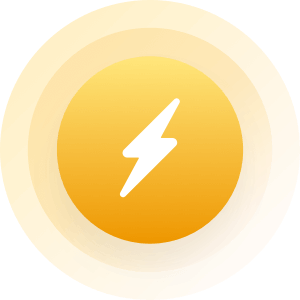| Topic: a man to remember (Simon Bolivar) | |
|---|---|
|
Edited by
TheLonelyWalker
on
Sun 07/20/08 07:59 AM
|
|
|
Simón Bolívar was born on July 24, 1783, to a privileged family in Caracas, the main city in the region known as New Granada. His family was typical of the wealthy criolla (Creole) class that had developed throughout the Spanish colonies: large landowners, slaveholders, involved in selling clothing from Spain to the local population in exchange for native coca that was shipped back to Spain. The seeds of rebellion By the time Bolívar was born, social struggles were already breaking out against Spanish colonial rule. Slave rebellions and uprisings of Indigenous laborers were more and more frequent. Simón Bolívar The wars of liberation It was ultimately criollos like Simón Bolívar who took leadership of the liberation wars against the Spanish royalist forces. Bolívar first took part in an uprising in Caracas in April 1810, when pro-independence criollos took advantage of a political crisis in Spain to declare independence. Similar declarations followed in Bogotá, the capital of New Granada, Chile and Mexico. Ecuador followed after more considerable fighting. Authoritative Bolívar biographer Gerhard Masur notes that, “Only liberté [freedom], of the three great battle cries of the French Revolution, interested the South Americans. Egalité and fraternité [equality and solidarity] were hardly ever mentioned.” (“Simon Bolivar”) The class prejudices of the criollo leaders were most apparent at the outset of the struggle for independence—before the broader masses were involved in the struggle. The contradictory interests of the criollo forces were representative of those who wanted liberation from Spain, and at the same time aspired to be a new ruling class. Simón Bolívar, however, took the message of freedom more seriously. He, along with a handful of other independence leaders, freed his estate’s slaves. Despite the relative ease of the initial declarations of independence, reaction began to mount. Royalist forces loyal to the Spanish monarchy began to assemble armies to fight to rejoin the empire. Combined with a Spanish naval blockade and a devastating earthquake in 1812, the newly independent Venezuelan government collapsed. Bolívar went into exile in New Granada. It was there, in Cartegena, that Bolívar emerged as the great advocate of Latin American independence and unity. On Dec. 15, 1812, he issued the “Manifesto of Cartegena,” which included the phrase that would summarize his thought for the rest of his lifetime: “I believe that our enemies will have all the advantage as long as we do not unify our American government.” For the next 12 years, Bolívar combined the roles of a general and a political leader. Almost immediately, he declared the most uncompromising attitude toward the Spanish loyalists, who by now were terrorizing the independence supporters. He unleashed a campaign of total war against the reactionary forces. “Since our oppressors force us into this deadly war, they will vanish from the face of America. And our soil will be cleansed of the monsters that sully it. Our hatred knows no bounds, and this is a war to the death.” (Quoted in Masur) Combined with this, he aimed to split off the Spaniards from the other castes by declaring a kind of revolutionary justice. “Spaniards,” he wrote, “be sure of death even when neutral, unless you act effectively for America’s liberty. Americans, be sure of life, even if guilty.” (Quoted in Madariaga) Abolishing slavery In 1815, Bolívar had taken refuge in the south of Haiti. There he met Haitian president Alexandre Pétion. Pétion offered to supply Bolívar’s armies with weapons, ammunition and troops—on the condition that the independence armies champion the abolition of slavery. Bolívar agreed and kept his word. The Haitian Revolution and the Latin American independence struggle meant that slavery was ended in most of Latin America two generations before the U.S. Civil War. As in the Civil War, the adoption of the program of the abolition of slavery swelled the ranks of the revolutionary armies with Black troops eager to do battle for their freedom. Bolívar again invaded and liberated Venezuela in 1817. He was elected president of Venezuela and established a revolutionary government at Angostura, now Ciudad Bolívar. In 1819, New Granada was added to the territories free from Spanish domination. On Sept. 7, 1821, Bolívar was declared president of Gran Colombia, a federation including most of modern Panama, Ecuador, Venezuela and Colombia. Within three years, until the 1824 Battle of Ayacucho, Bolívar’s armies continued to march through Latin America, liberating most of the continent. Unfortunately, his dreams of a united continental republic could not be realized. Rivalries and competing interests within the criollo class—based, after all, on a petty-bourgeois mentality—meant that different factions would split from the united republic. Bolívar’s 1812 prediction that lack of unity would lead to intervention by the big powers came true in his lifetime and in the two centuries since then. Bolívar attempted to maintain a strong central leadership to overcome the growing divisions of Gran Colombia—what is today, Colombia, Venezuela, Ecuador and Panama, along with parts of Costa Rica, Guyana, Peru and Brazil. In the “Organic Decree of Dictatorship,” he named himself sole ruler in 1828. He resigned on April 27, 1830, and died of tuberculosis the same year. Bolívar freed the continent from Spanish rule. It was the final nail in the coffin of the declining Spanish Empire. At the same time, Bolívar’s wars of independence came at the dawn of a new imperial power: the United States. In an Aug. 5, 1829, letter, Bolívar noted that, “The United States … seems destined by Providence to plague America with torments in the name of freedom.” |
|
|
|
|
|
QUE VIVA LA REVOLUCION CARAJO!
|
|
|
|
|
|
Nada ni nadie nos puede doblegar . Somos el futuro . Es hora de actuar!
|
|
|
|
|
|
Context?....
And it was during Harrison's tenure as minister that Bolívar penned the words that have become easily the favorite Bolivarian quotation among contemporary Latin American leftists: "The United States ... seem[s] destined by Providence to plague America with torments in the name of freedom." Those who make much of that quotation seldom mention, if they are even aware, the context in which it was uttered. Instead, they commonly imply that Bolívar was foresightedly warning against the later machination of the Central Intelligence Agency in Chile or the not-so-covert struggle of the Reagan administration against revolutionary Nicaragua. In reality, Bolivar's statement is contained in a letter to the British chargé in Bogotá––Harrison's counterpart and diplomatic rival––whose favor Bolívar at the time was ardently seeking, and the principal "torment" involved was nothing but the conventional republicanism that U.S. agents throughout Latin America were then promoting in opposition both to the diplomatic and ideological influence of Great Britain and to the protomonarchist schemes associated with Bolívar and his supporters (These agents' methods often entailed blunt and brazen meddling in Latin American affairs, but their immediate objectives were essentially innocuous.) Another part of the context of Bolívar's words is, of course, his underlying attitude toward the United States, in which elements of admiration and distrust existed side by side. Under the heading of admiration, there are scattered in his writings any number of highly laudatory references to the United States, its people, and institutions, which receive little emphasis in anthologies published in Havana and, in other quarters, receive sometimes undue emphasis. As he declared in his Angostura Address of February 1819, one of the key documents of Bolívar's political thinking, "the people of North America are a singular model of political virtue and moral rectitude; ... that nation was cradled in liberty, reared on freedom, and maintained by liberty alone." Or again, in an essay on public education, he spoke of "the Republic of the United States, that land of freedom and home of civic virtue." One wonders how an exemplar of civic virtue could be intent on plaguing America with torments, yet Bolívar meant what he said in both cases. Though it may seem paradoxical at first glance, Bolívar's very admiration for the virtues of the North American people put him on guard against them. For one thing, he felt that they evoked an excessive and dangerous fascination from his fellow Latin Americans, so that he never failed to join his praise of the United States with a stern warning against attempts to copy U.S. institutions. The people of Latin America, as he stated with some exaggeration in the same Angostura Address, had been given over to "the threefold yoke of ignorance, tyranny, and vice"; hence, they could not possibly hope to live under the same laws. Indeed, he half suspected that the political institutions of the United States were too perfect to endure indefinitely even here, which was simply one more reason why the Latin American nations should not even try to adopt them. As he observed on still another occasion, "I think it would be better for South America to adopt the Koran rather than the United States’ form of government, although the latter is the best on earth." |
|
|
|
|
|
Nada ni nadie nos puede doblegar . Somos el futuro . Es hora de actuar! amen, bro. |
|
|
|
|

|
|
|
|
|
|
¡viva la República!

|
|
|
|
|
|
Context?.... And it was during Harrison's tenure as minister that Bolívar penned the words that have become easily the favorite Bolivarian quotation among contemporary Latin American leftists: "The United States ... seem[s] destined by Providence to plague America with torments in the name of freedom." Those who make much of that quotation seldom mention, if they are even aware, the context in which it was uttered. Instead, they commonly imply that Bolívar was foresightedly warning against the later machination of the Central Intelligence Agency in Chile or the not-so-covert struggle of the Reagan administration against revolutionary Nicaragua. In reality, Bolivar's statement is contained in a letter to the British chargé in Bogotá––Harrison's counterpart and diplomatic rival––whose favor Bolívar at the time was ardently seeking, and the principal "torment" involved was nothing but the conventional republicanism that U.S. agents throughout Latin America were then promoting in opposition both to the diplomatic and ideological influence of Great Britain and to the protomonarchist schemes associated with Bolívar and his supporters (These agents' methods often entailed blunt and brazen meddling in Latin American affairs, but their immediate objectives were essentially innocuous.) Another part of the context of Bolívar's words is, of course, his underlying attitude toward the United States, in which elements of admiration and distrust existed side by side. Under the heading of admiration, there are scattered in his writings any number of highly laudatory references to the United States, its people, and institutions, which receive little emphasis in anthologies published in Havana and, in other quarters, receive sometimes undue emphasis. As he declared in his Angostura Address of February 1819, one of the key documents of Bolívar's political thinking, "the people of North America are a singular model of political virtue and moral rectitude; ... that nation was cradled in liberty, reared on freedom, and maintained by liberty alone." Or again, in an essay on public education, he spoke of "the Republic of the United States, that land of freedom and home of civic virtue." One wonders how an exemplar of civic virtue could be intent on plaguing America with torments, yet Bolívar meant what he said in both cases. Though it may seem paradoxical at first glance, Bolívar's very admiration for the virtues of the North American people put him on guard against them. For one thing, he felt that they evoked an excessive and dangerous fascination from his fellow Latin Americans, so that he never failed to join his praise of the United States with a stern warning against attempts to copy U.S. institutions. The people of Latin America, as he stated with some exaggeration in the same Angostura Address, had been given over to "the threefold yoke of ignorance, tyranny, and vice"; hence, they could not possibly hope to live under the same laws. Indeed, he half suspected that the political institutions of the United States were too perfect to endure indefinitely even here, which was simply one more reason why the Latin American nations should not even try to adopt them. As he observed on still another occasion, "I think it would be better for South America to adopt the Koran rather than the United States’ form of government, although the latter is the best on earth." Interesting!! |
|
|
|
|
|
Context?.... And it was during Harrison's tenure as minister that Bolívar penned the words that have become easily the favorite Bolivarian quotation among contemporary Latin American leftists: "The United States ... seem[s] destined by Providence to plague America with torments in the name of freedom." if you were to live in one of the countries of the American continent (not USA, that is not America only. America is the whole mass of land that runs from Alaska to Argentina) you would know that in fact Bolivar's prediction were right. You have cited enough examples of the imperialist foreign policy of this country. |
|
|
|
|
|
That is two continents Miquel.
Didn't Bolivar want to be a dictator?? |
|
|
|
|
|
That is two continents Miquel. Didn't Bolivar want to be a dictator?? with regard the first comment reseach this name. Amerigo Vespucci. with regard the second two hundred years ago when our nations were raising they needed such a thing, to put things in order (after all USA have supported dictators Pinochet, Noriega, Trujillo, etc.) However, in these days dictatorship is a concept which does not work anymore. That is why the crazy Chavez is failing so bad. (He has two of the worst things in politics he is a communist and a dictator). |
|
|
|
|
|
That is two continents Miquel. Didn't Bolivar want to be a dictator?? no..he was offered to be King and turned it down believing that latin america would be better off as a democracy..boy, was he wrong!!!!! we'd do far better with a monarchy, in my opinion... |
|
|
|
|
|
That is two continents Miquel. Didn't Bolivar want to be a dictator?? with regard the first comment reseach this name. Amerigo Vespucci. with regard the second two hundred years ago when our nations were raising they needed such a thing, to put things in order (after all USA have supported dictators Pinochet, Noriega, Trujillo, etc.) However, in these days dictatorship is a concept which does not work anymore. That is why the crazy Chavez is failing so bad. (He has two of the worst things in politics he is a communist and a dictator). Chavez is not a dictator...and the communist party he represents has raised the standard of living for its poorest citezens, and has gotten rid of the elite leeches that have exploited that country for decades...viva Chavez...we need sooooo many more like him here.... 
|
|
|
|
|
|
Edited by
Fanta46
on
Tue 07/22/08 09:25 AM
|
|
|
That is two continents Miquel. Didn't Bolivar want to be a dictator?? with regard the first comment reseach this name. Amerigo Vespucci. with regard the second two hundred years ago when our nations were raising they needed such a thing, to put things in order (after all USA have supported dictators Pinochet, Noriega, Trujillo, etc.) However, in these days dictatorship is a concept which does not work anymore. That is why the crazy Chavez is failing so bad. (He has two of the worst things in politics he is a communist and a dictator). Regardless it is two continents. I thought Bolivar was named dictator of Peru. When he tried to unite several countries in his liberated areas he was met with severe resistance and then tried to establish a Central gov with him as a lifetime President, and that also failed due to resistance by the people. He may have liberated many South and Central American countries from Spain, but he was never able to unite the people! No one has ever been able to do that, and is why they are still weak! Like we say here in the United States of America. United we Stand!! Divided we fall! |
|
|
|
|
|
From Websters,
 
Main Entry: Amer·i·ca Pronunciation: \ə-ˈmer-ə-kə, -ˈme-rə-\ Function: geographical name 1)-either continent (North America or S.South America) of the western hemisphere 2)-or the Amer·i·cas \-kəz\ the lands of the western hemisphere including North, Central, & S.South America & the West Indies 3)-united states of america I wonder what it was called before the Spanish came here?? |
|
|
|
|
|
United States of America
The name say it by itself. A Union of States in the American continent. It's not even a proper name. For instance Ecuador is a proper name which comes to the fact is in the equator. Argentina which come from the latin name of silver which is Argentum because the Republic of Argentina is rich in silver. Colombia in honour of Christopher Colombus. Bolivia in honour of Simon Bolivar. And the list can go on and on. therefore, America is the mass of land from Alaska to Argentina, at least that is the way is taught everywhere in the world but here. |
|
|
|
|
|
Yes, it is, but it is divided into two continents. Geographicaly three regions.
The name comes from a Portugese explorer and first appears on a German map! The Native Tribes of the "land mass" never called it America! |
|
|
|
|
|
Yes, it is, but it is divided into two continents. Geographicaly three regions. The name comes from a Portugese explorer and first appears on a German map! The Native Tribes of the "land mass" never called it America! Glenn buddy!!! Vespucci was italian |
|
|
|
|
|
Yes, it is, but it is divided into two continents. Geographicaly three regions. The name comes from a Portugese explorer and first appears on a German map! The Native Tribes of the "land mass" never called it America! Glenn buddy!!! Vespucci was italian Ooops, LMAO. OK, Italian... 
|
|
|
|
|
|
you are right native americans never called it America, but for them all this land mass was one, and that is the way it should have remained, but you know the history.
sad indeed. |
|
|
|
|










